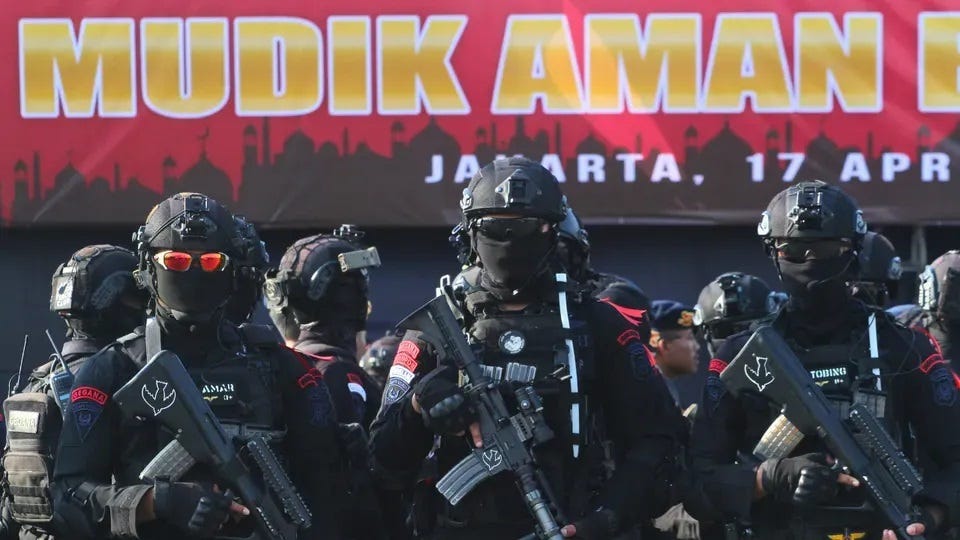Indonesia's tool to measure people's vulnerability to radicalisation
The tool is also crucial to screen potential national leaders.

WEST JAVA: Indonesia's National Counterterrorism Agency (BNPT) is currently improving a tool to measure people’s potential vulnerability to radical extremism, said the body’s chief.
One form of improvement made is to ensure that the instrument variables can indicate the phase or level of a person's exposure, said BNPT chief Rycko Amelza Dahniel in the agency’s statement.
Rycko said this during a National Insights Assessment activity at BNPT's headquarters in Sentul city, Bogor regency, West Java province, Thursday (Aug 10).
“The variables we have to examine are the level of tolerance, the level of radicalism, and even the level of potential for acts of terror,” Rycko explained.
“Departing from this variable, this instrument must be able to show which phase or level the individual is in."
The top counterterrorism official said improving the measuring tool for an individual’s potential vulnerability to radical extremism is also crucial for screening potential national leaders.
"We need this measuring tool to see the future leaders of the nation," he added.
Meanwhile, Reni Kusumowardhani of the Advisory Council of the Indonesian Forensic Psychology Association explained that they previously tested the validity and reliability of the instrument.
"Previously, we conducted validity and reliability tests in eight representative cities of western, central and eastern Indonesia," she said in the statement.
The measurement results from this instrument, according to her, will categorise the score obtained by the subject in six extreme radical risk categories ranging from high to low risk.
BNPT introduced the measurement tool on Oct 4, 2022.



